Just when it looked like the current week would fizzle out on a negative note for rates, our least favorite market mover is back in the news.
B.1.1.529 (designated now as “Omicron”), a new covid variant hit the market like a ton of bricks on Friday morning. 48 hours earlier, Google had never heard of it. Search interest began to ramp up on Thanksgiving Day. By Friday, it’s an utterly pervasive headline.
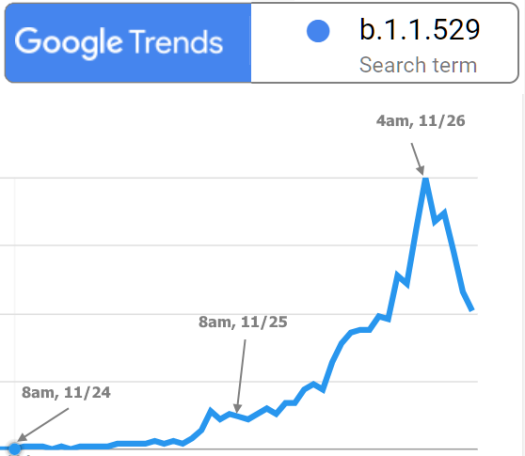
With financial markets closed for Thanksgiving, there was an abrupt reaction upon reopening for the half-day on Friday.
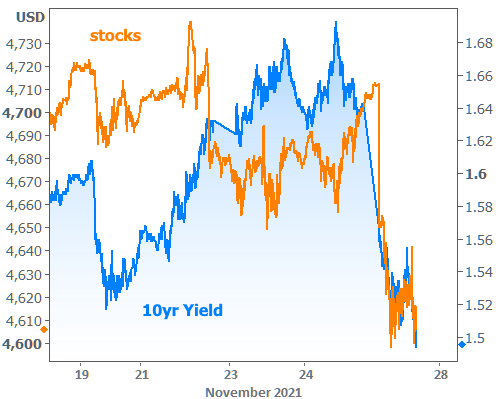
This augmented other moves that were already in progress, like the recent decline in oil prices and the outperformance of European bonds. Both are positive indicators for US rates as long as they keep doing what they’re doing.
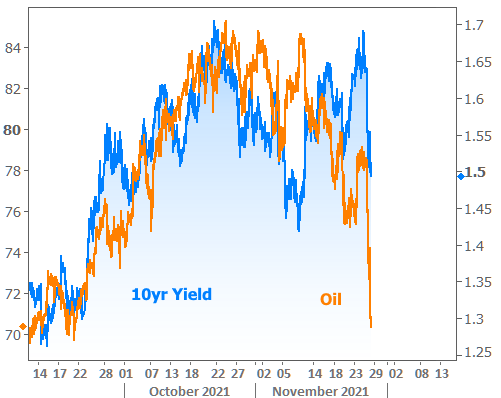
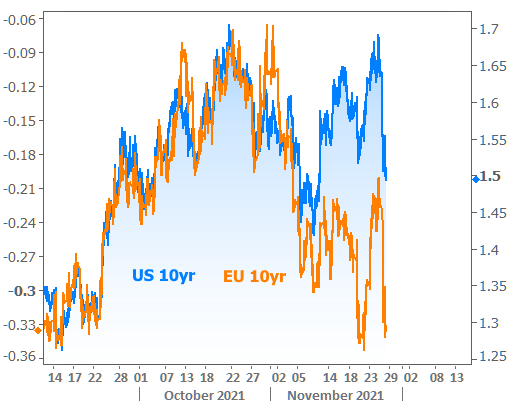
Some of the recent economic data, such as the Consumer Sentiment survey that came out on Wednesday, also suggests economic caution.
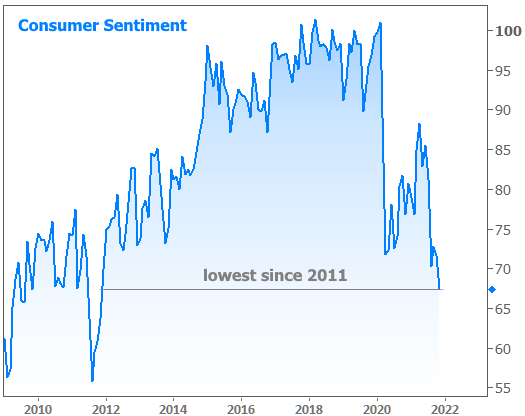
The counterpoint is that the low sentiment reading is primarily a factor of inflation, and inflation puts upward pressure on rates. A key inflation report was out at the exact same time on Wednesday morning, and let’s just say it remains elevated.
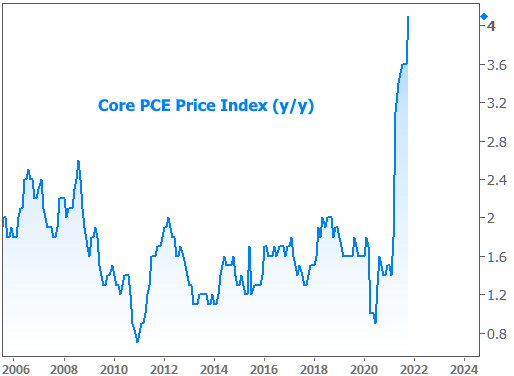
There are other counterpoints as well–other places where the post-covid economy is shining. This week’s most striking example is the drop in weekly jobless claims to the lowest levels since the late 1960’s.
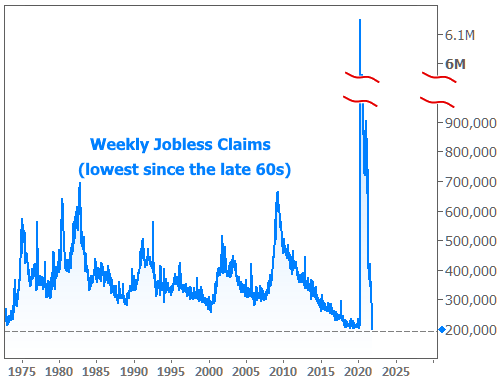
The point is that there are reasons for rates to move higher or lower. There always are.
In general, economic healing, inflation fears, and Fed tapering expectations began putting upward pressure on rates as early as the summer of 2020. Since then, there have been several “yeah buts” that have pushed back in the other direction. Most notably, the delta variant brought rates down significantly this past August.
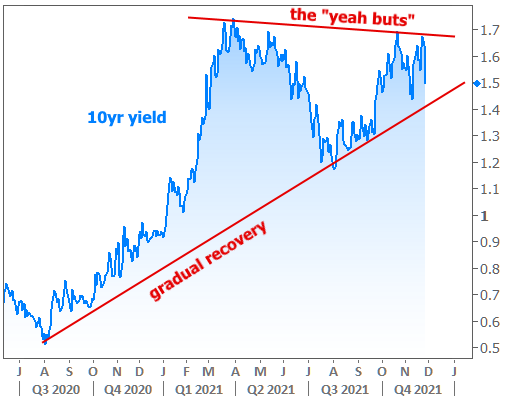
In the coming weeks, the market will increasingly be looking to resolve the battle visualized in the chart above. If the Omicron variant proves to be as troublesome as Delta, it would likely go a long way toward reinforcing recent rate ceilings. Even if it doesn’t, traders are wondering if we’ll see a similar uptick in covid cases to those seen across Europe in recent weeks. There is already a modest increase in the past few weeks.
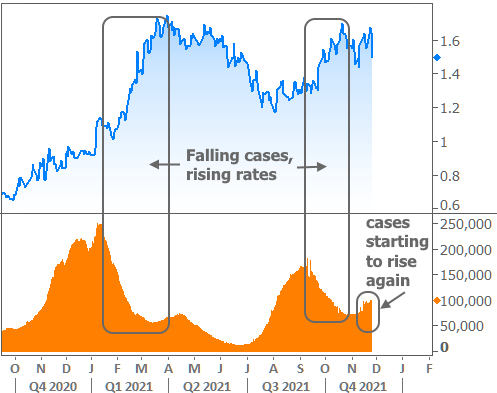
Update on New Conforming Loan Limits
With unprecedented home price appreciation in 2021, there is a lot of anticipation for the annual increase in conforming loan limits. This usually happens on the 4th Tuesday of November, but this year it will be the 5th Tuesday (Nov 30th). We know this beyond a shadow of a doubt because the calculation relies on FHFA’s quarterly expanded home price index data, and that data has been on the calendar for next Tuesday since August 2020.








